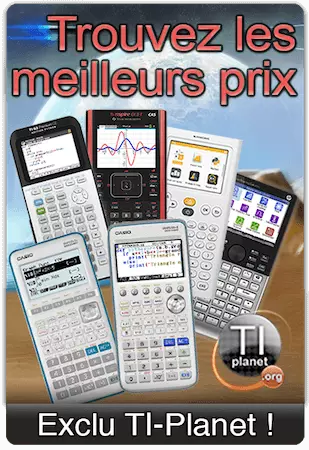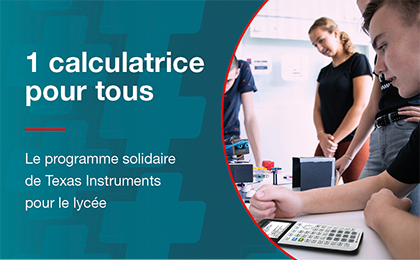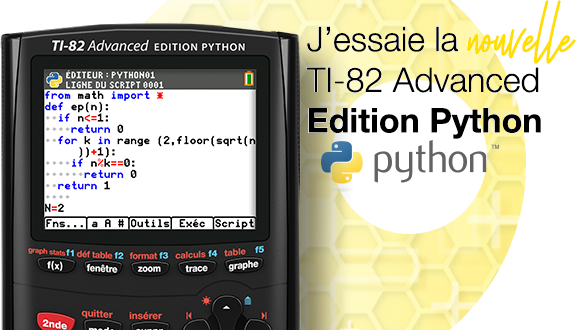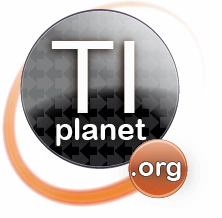As I do not live in France, the topic of the French education system and its standards only concerns me tangentially. However, here in (specifically south-western) Germany, we have an anticyclical downgrade of technological aids in the maths curriculum that does remind me of the current situation described in the beginning of the Thread. Whilst the in-school applications of technologies like iPads (and other parts of the Apple ecosystem) and smart whiteboards increase, the position of the calculator gets reduced more and more. What started with graphing calculators (the likes of the Casio fx-9860G and the TI-82 STATS, just to name examples), was then diminished in 2017 (2019 for all general Gymnasiums) to a mere scientific calculator with extra capabilities in areas of, for example, unit/number system conversions and distributions (like the Casio fx-87 DE Plus/X or TI-30X Plus MV/MP). Furthermore, the announcement for the upcoming changes in the curriculum for all students who are sitting their Abitur exam in 2030 or later sees the further diminishment of the calculator to one with not nearly the functionality of the currently allowed scientific calculator models.
This sort of diminution, whilst, admittedly, nowhere near as harsh and/or cruel to the students as this current French reform is, is simply a different sign of the same thing. It is a (rather paradoxical) fear of the future and the readily available technological advancements seen in it, which have compelled the people in charge of education to take such measures. This return to the picture of the mathematics student as being able to not only have an understanding of the deeper and complex processes happening behind the mere mathematical expression on their worksheet, as well as also being able to then immediately comprehend and actually compute the question with correct and question-appropriate results all in the confines of their own heads and the worksheet in front of them, is a rather interesting one. It shows, that, in the advent of technology like iPads or AI inside the classroom, and the resulting easier access to information within the confines of the lesson, the maths curriculum in question is deciding to go with the isolationist approach of trying to restrict this technology as much as possible without outright banning it. For some reason, the common joke of the old teacher yelling about students having to know how to work out most of the higher mathematics taught today in their head, due to them not always having a calculator around to help them out is, once again, becoming a reality.
Except, that it really should not. I can understand the fear of the officials responsible to the degree of such technology being able to cultivate a dependency, and yes, that is a very real issue. However, that understanding very quickly dissipates, when these same officials in question use that point to restrict already existing and accepted educational tools. Whether it is the ban discussed here, or similar measures around Europe and the world, the restriction of tools tailor-made to the requirements of schools and curriculums with clear benefits to students is inexcusable.
Also, if I might be permitted to make this point in regard to the place of AI and calculators in the maths classroom; with the calculator, any problems on the side of the accuracy or utilized calculator operating system can be directed to a manufacturer, that will then have an actual incentive of correcting any found errors and improving their products for the better. An example of this kind of manufacturer response would be the introduction of the TI-30X Plus/Pro MathPrint after a flaw was discovered in the code of the preceding TI-30X Plus MV, which allowed students to illegitimately upgrade the calculator's system to the one of the TI-30X Pro MV, thus allowing the usage of said Pro's extended (and exam-prohibited) features. TI patched this up quite well, with their introduction of the MathPrint series, and took direct and effective accountability. With AI, such a display of accountability for the provided product is most definitely going to be a rare display, as (,to my knowledge,) there is no well-known AI provider that specializes on AI tools for the educational (and, more specifically, mathematical) context, that would fall under exam regulations. If similar flaws were to be found with AI, then the providers of such AI do not have any real incentive to actually attempt to fix the issue concerned, as they are not necessarily as specialized on the field of education as companies like TI and their calculators are. If TI does not fix an issue with their calcs, then the relevant government institution can (and probably will) simply disallow their product, which would be a serious risk for TI's profit and good standing within the education community. Most AI providers have other commercial usages of their AI, so a possible lack of education-related usage is not as dangerous to their operations as it would be with companies like TI (not to mention all the legal qualms that comes with the usage of AI in academic contexts as well.)
With that in mind, is it the appropriate and correct solution to that kind of upcoming problem to ban (or diminish) the calculator from the beneficial role it holds currently? Absolutely not.
I hope this made some sense to you, and to whoever is reading this, have a good day.















